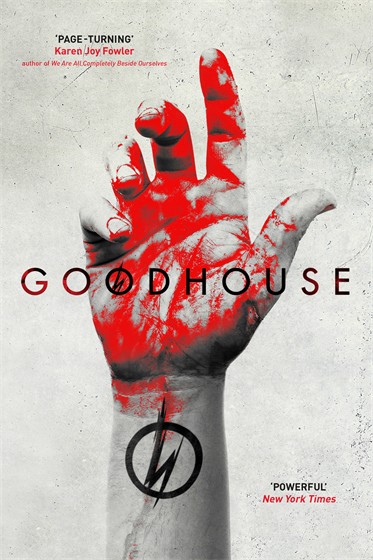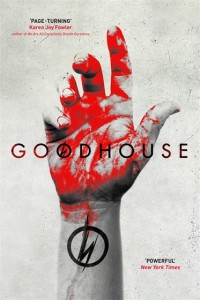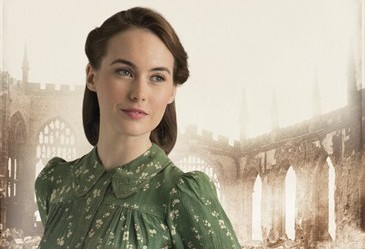Goodhouse – Peyton Marshall Review

 Released: January 2015
Released: January 2015
“The day I committed my first crime I was dressed in civilian clothes.”
This is the line that introduces us to the world of Goodhouse and it’s a line that captured my attention from the get-go. If a book has the power to do this from its first sentence alone, then you know you’re on to a winner.
In Goodhouse, we get the story of James, a 17-year-old boy who was identified as having criminal genetics at a young age. Like all other boys with bad genes, James was drafted into the Goodhouse educational system, a series of correctional facilities tasked with the job of raising the criminality out of boys before they are re-introduced to civilian life upon graduation. It’s an intriguing premise, drawing on the open-ended debate of how criminal behaviour starts and whether it can ever be truly eradicated. It’s also a premise that makes for a truly powerful reading experience.
The novel really kicks off when James meets Bethany, an intelligent, civilian girl and a tech whizz who’s able to hack into official computer programmes, on a community outreach day. Left alone, James accidentally steals Bethany’s hair barrette and kickstarts the sequence of criminal behaviour patterns that sees James’ world change and the secrets of the Goodhouse system revealed. This is where we are introduced to the dark side of Goodhouse and to a world of Exclusion Zones, medical trials and Zeros, an extremist group who believe the best way to cure these criminal boys is to burn them and cleanse their souls with fire.
This novel had a very Orwelian feel to it, making use of the idea of a controlling, oppressive society in the near future with its own totalitarian regulating authorities and alternative methods of punishment for those who fall out of line. With Goodhouse, Peyton Marshall has created a world that has been praised for its plausibility, and it’s easy to see the parallels with our current reality. In itself, the description of a society such as this was fascinating and the revelation of its history and practices were very well done.
James is a fantastic narrator, if not a little unreliable, and his journey is both vivid and gripping. From his internal battle to become a better thinker and repress his “wrong feelings” of violent behaviour to his fight for survival in a corrupt system, James’ central voice and story arc is this novel’s star feature. The only thing that felt a little bit off to me was why all of this was happening to James specifically, unless it was quite simply a case of being in the right place at the right time, which is a little happenstance in an otherwise cleverly plotted storyline.
Nevertheless, I did really like this novel. I raced through it over the course of a couple of hours and it continued to surprise me until the very end. Beneath its position as social critique and commentary on criminality or morality, however, Goodhouse is a survival story through and through. It’s a powerful story of a scarily plausible future and a boy struggling to understand his place in the world that raised him to be good whilst hiding their own morally corrupt values.
In short, it’s a novel you don’t want to miss out on!
★★★★

